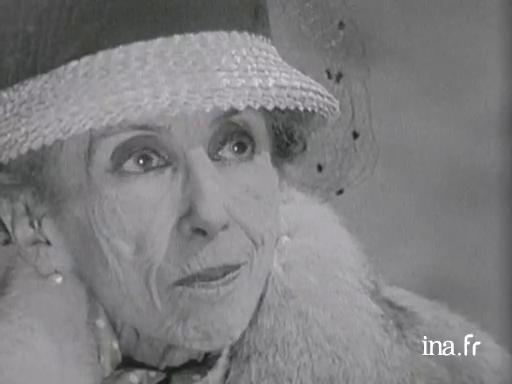Karen Blixen

Information
Now over 80 years old, Karen Blixen talks about her collection of short stories Babette's Feast, and discusses her life in Africa and her writing career.
Context
Karen Blixen (1885-1962), a Danish writer that was born into a very rich family, started writing a series of tales at the age of 19, Seven Gothic Tales, which was written in a gothic style and published under the pseudonym Osceola. She keeps company with Denmark's high society and marries Bror Blixen, a rich epicurean who's an unaffected extrovert. Their common interest is their willingness to discover Africa, Kenya in particular, where the Blixens move to in order to run a coffee plantation in 1913.
Infected with syphilis, she returns to Denmark following her farm's bankruptcy. She then devotes herself completely to writing. Her novel, The African Farm (1937), in which she tells the story of her romanticised souvenirs of Africa, bring her worldwide glory. The book was then made into the film Out of Africa, by Sydney Pollack in 1985. In 1939, she received the Tagea Brandt Rejselegat prize (the Nordic Council's grand prize in literature). Of her other novels, Babette's Feast was also a great success and it was later on made into a film by Gabriel Axel in 1987.

















